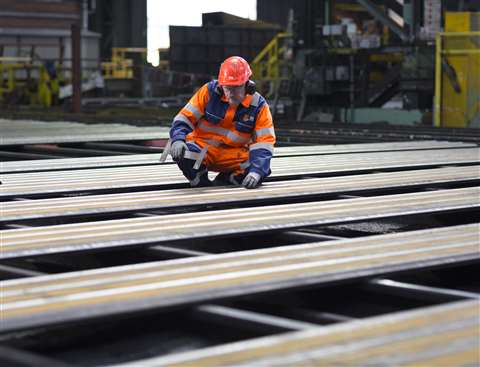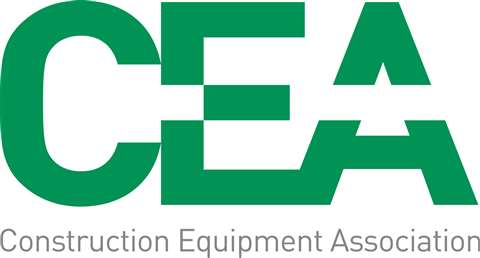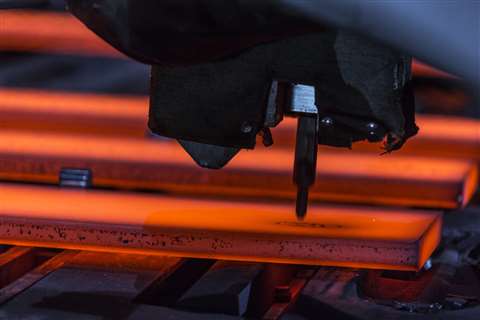How British Steel will meet low-carbon goals
15 December 2021

British Steel has revealed that it will deliver net zero steel by 2050 and significantly reduce its CO2 intensity by 2030 and 2035, by setting carbon goals through the Science Based Targets initiative and by adopting new technologies and working methods.
Already drawing praise from both the Construction Equipment Association CEA and the British Constructional Steelwork Association (BCSA), British Steel’s Low-Carbon Roadmap has continued to gather momentum since its launch in October of this year.
The Roadmap will see the manufacturer use a range of techniques and innovations to lower the embedded carbon in its products. These include assessing and adapting technologies such as carbon capture and storage and hydrogen, alongside increasing scrap utilisation and Electric Arc Furnace steelmaking.
David Waine, British Steel’s Commercial Director for Special Profiles and Vice Chairman on the CEA’s Management Council, said, “The construction and earthmoving equipment sector is a key one for British Steel.
“We supply a wide range of products to this market, ranging from track shoe profiles to cutting edge profiles, and we’re proud to be Europe’s leading producer of track shoe profiles.
“All the products we supply, which are made at our mill in Skinningrove in the north-east of England, need to perform to a reliable and high standard.
“Yet, with the growing focus on carbon intensity throughout the supply chain and product life cycle, our decarbonisation strategy is becoming an increasingly integral part in what we need to do.”
As well as incorporating circular and material efficiency methodologies in its operations, British Steel will support recycling and reuse across the industry, and will also work to promote the benefits of using low-carbon steel - which include light weighting and longer lifespans - to end users.
“Our Low-Carbon Roadmap is achievable with appropriate supporting government policies. We continue to engage with government to ensure the correct policies are adopted to achieve carbon reductions,” said the company.

As a growing number of industries starts recognising and managing their decarbonisation challenges, Lee Adcock, British Steel’s Environment & Sustainability Director, spoke exclusively to the CEA about the challenges the steel industry as a whole faces over the coming years, and the steps the company is putting in place to deliver its ultimate goal of net-zero steel by 2050.
Adcock said, “One of the challenges ahead is finding ways for companies to work together to reduce whole life-cycle carbon. We all have a duty to consider how we minimise carbon intensity throughout a product’s life, whether that’s the steel products utilised, the distribution carbon footprint or even the rubber used in a vehicle’s tyres.
“We’ve made considerable efforts to review our activities and operations, looking in detail at how we source our raw materials, the manufacturing processes we use, the fuel sources we employ, how we can make the most of carbon capture - and the list goes on.
Adcock added, “This really is a complex area but we’re already making great inroads through, for example, recycling and reusing our by-products, now at levels in excess of 90%.
“It’s really exciting to embark on a strategy that will significantly reduce our CO2 intensity by 2030 and 2035. Yes, it’s aggressive, but with the right support and frameworks in place, it’s entirely achievable.”

This was one of the key messages shared with the CEA; that efforts to decarbonise and reduce carbon intensity are across the board, not just within the steel supply chain.
British Steel said that although the global steelmaking industry accounts for between 7% and 9% of all man-made CO2 emissions, it is by bringing actions together that the optimum benefits will be delivered.
Suneeta Johal, Chief Executive Officer for the CEA, said, “Global manufacturing companies are making enterprise-wide commitments to reduce emissions and it’s very encouraging to see our members embarking on the journey to net-zero and embracing the challenges this brings.
“British Steel’s decarbonisation roadmap is a prime example of one of our members who is embracing new technologies and adopting new strategies to reach carbon neutrality.
“Bringing circular economy targets into effective action is key to driving down carbon emissions and supporting net-zero ambitions. I congratulate British Steel on a well-thought-out initiative.”
STAY CONNECTED



Receive the information you need when you need it through our world-leading magazines, newsletters and daily briefings.
CONNECT WITH THE TEAM







